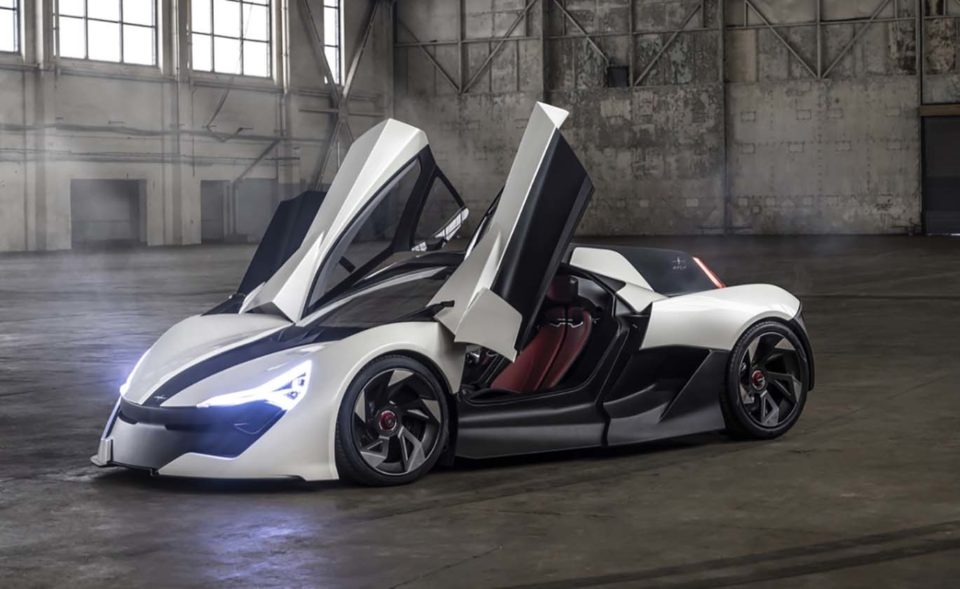Senator Ben Bruce Was Right About His Electric Car Bill, But He Might Have Spoken Too Soon
By Happy Benson
After Senator Ben Bruce introduced his Electric Car Bill to the 8th Senate of the Federal Republic of Nigeria, he took to his Twitter account to share with the public a snapshot of what the objectives of his bill were.
Unfortunately, the bill couldn’t make it to a second hearing on the Senate floor and died a natural death thereafter. In my opinion, the 8th Senate didn’t kill the bill for its lack of vision and progressivism. However, I believe the bill, which proposed a mandatory adoption of electric vehicles (EVs) on the Nigerian public by 2035, got kicked to the curb for its prematurity and fundamentally flawed approach. It attempted to formulate a set of legislative articles that would hurriedly outlaw the use of gasoline vehicles in a country that solely depends on fossil energy to anchor its economy. I venture to opine that if the bill had sought to lay down a robust legislative apparatus designed to foster the organic adoption of electric vehicles, the bill would have seen the light of day. That didn’t happen because some of his more conservative colleagues and members of the public perceived the bill not only as impracticable but also as an arrogant display of feigned progressivism and a blatant indulgence in political theater. Then again, there were others like me who believed that Senator Bruce’s bill was right on the money but that it was shot from the hip.
The bill neither appeared to have been put through a rigorous consideration for consequences, nor seemed to have factored in our unique environmental circumstances and cultural perspective. Rather, it seemed to have borrowed heavily from the green energy transition programs of more developed countries which are lights years ahead of Nigeria in key development metrics. All the countries that have set a date for the transition from gasoline cars to electric vehicles have the following in common: a very well developed legislative framework for renewable energy, which electric vehicles are a big part of; a massive investment in building critical infrastructure and social goods such as better road networks, steady power supply, and tens of thousands of charging stations to give a signal to the public that they intend to follow the electrification path; and incentivized purchases of electric vehicles through tax breaks, zero toll fee, and subsidized duties to create a mass appeal and stimulate an organic adoption of electric vehicles. For instance, the UK and France had combined charging points in the excess of 50,000 before they announced a transition date from Internal Combustion Engine (ICE) cars to EVs. At the time of Senator Bruce’s bill, Nigeria didn’t have one single charging station. Yet the bill proposed a cutoff date for gasoline vehicles by 2035, five years earlier than France and the United Kingdom.
The “Common Sense Senator” swung and missed on some crucially pertinent points to get his colleagues and the Nigerian citizenry sold on a piece legislature that some considered an alien concept. The most relevant and best-selling points of electric vehicles to Africans aren’t any of the things highlighted in his bill, which, admittedly, are also of critical importance. The best attributes of renewable energy and EVs, by extension, are the unequaled opportunity it portends in helping the 88 million Nigerians without electricity gain access to it, and its limitless potential for heightened economic activities and employment opportunities. Leading the conversation to popularize electric cars in Nigeria with such objectives as to “(a) comply with the clean energy policy, (b) encourage the use of modern technology, (c) de-emphasis on oil consumption, and (d) reduce air pollution” isn’t very likely to get electric vehicles past the smelling tests with Nigerians. Rather, it would, arguably, facilitate the finer points of these amazing specimens of technology to fall between the cracks.
Electric vehicles are better for Nigerians than gasoline vehicles. They are cheaper to maintain, and they save the owners huge amounts of money at the pump. They drive better and are more comfortable to ride in. They are environmentally friendly and have futuristic features. They look cooler. They are a big part of the technology of the future. And, yes, you are just as safe driving them in a flooded area as you are driving in gas cars. When Nigerians realize how much electric vehicles can change their lives for the better, no lawmaker is going to have to persuade them to buy electric vehicles. In fact, they will not want to reelect any lawmaker who dissuades them from buying EVs. We don’t have to sell the idea of electric vehicles to anyone; its huge economic upsides and the superiority and futuristic nature of its technology sell itself.
All we need to do as advocates of renewable energy and electric vehicles is educate and make known the value proposition and the infinite possibilities that this technology has brought to the doorstep of every Nigerian and African. This is the works to which the Elecfrica Magazine is wholesomely dedicated.
And for the record, the Elecfrica Magazine neither agrees with the people who believed that the esteemed Senator Bruce’s bill was the grandstanding act of a showoff who wants to be seen as someone who lives ahead of his time, nor with others who thought he was, or at least sounded like, a paid salesman or a poster boy for Nissan Leaf.
Senator Ben Bruce is a legislative pioneer and champion of renewable energy and electric cars in the same sense that the Elecfrica Magazine is the trailblazing media house gunning to electrify Africa. And we shall always give him and every other African green energy ambassador our undiluted support and encouragement.

